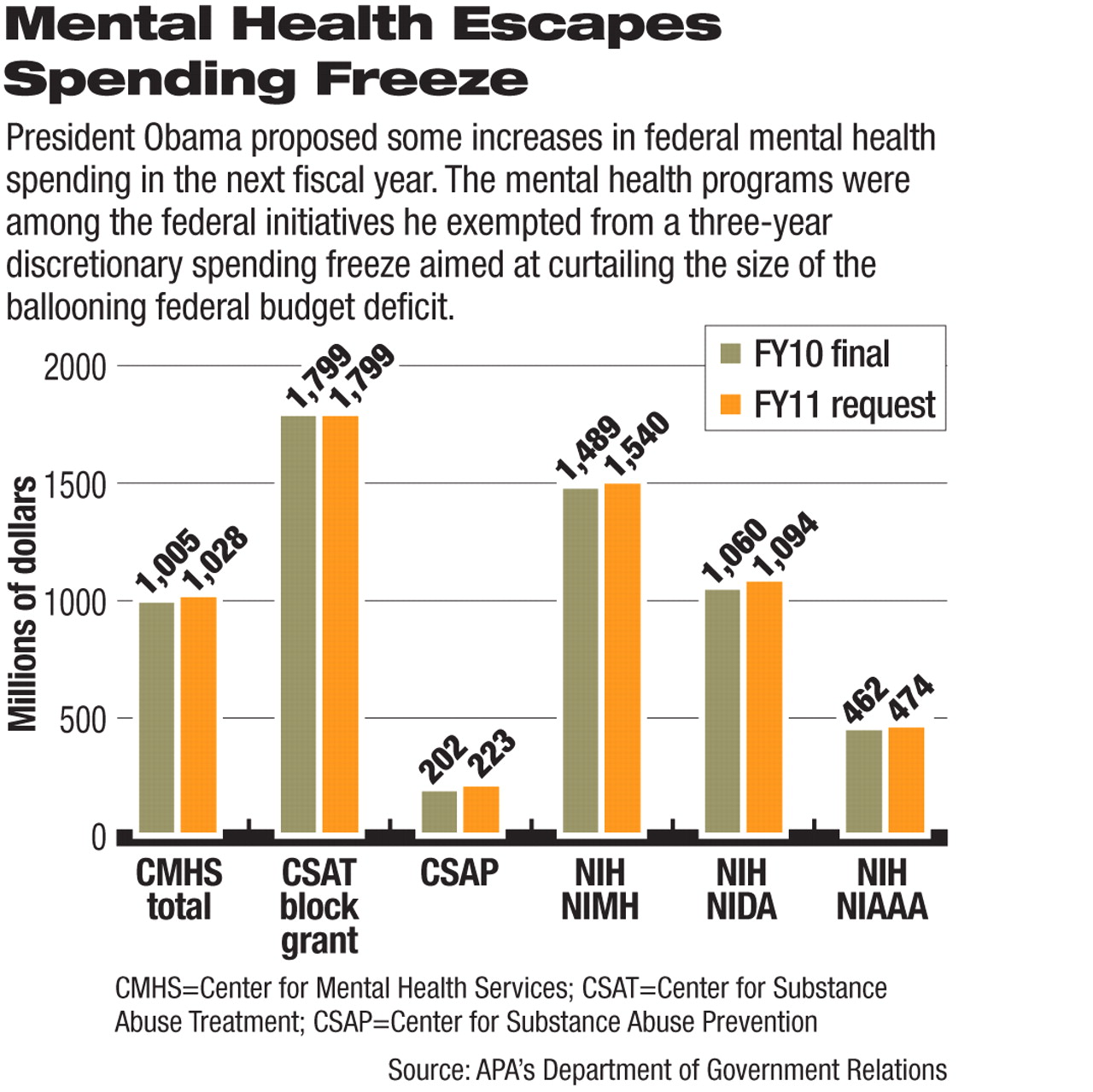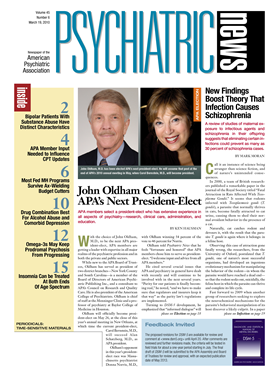Mental health funding largely escaped a government-wide halt in new spending under President Obama's proposed $3.8 trillion budget for the next fiscal year, which begins on October 1.
The mental health program winners in the new budget—released in February—include the National Institutes of Health (NIH), the Substance Abuse and Mental Health Services Administration (SAMHSA), and community health centers. The increases in those areas came despite Obama's promise to flatline most federal discretionary spending in the Fiscal 2011 budget as part of a three-year freeze in new spending.
“We're very, very encouraged,” said Lizbet Boroughs, associate director of APA's Department of Government Relations, about the proposed mental health funding.
The NIH would get a $1 billion boost in Fiscal 2011, to $32.3 billion, under the president's budget. That increase would benefit research funding at NIH's three mental-healthrelated institutes—the National Institute of Mental Health, National Institute on Drug Abuse, and National Institute on Alcohol Abuse and Alcoholism.
The SAMHSA budget, which provides the bulk of the federal government's funding for mental health services, also would grow by $110 million, or 3.2 percent under the Obama budget. Additionally, mental health programs at community health centers would receive $25 million of a $290 million overall increase proposed for the centers.
Medicaid—the biggest single payer for mental health care nationwide—would also see significant increases in its funding under Obama's budget. The president proposed $26 billion in new spending to extend a Medicaid funding increase provided under the 2009 economic stimulus law (PL 111-5). That measure provided states with $87 billion in additional funding for their portion of the joint federal-state program, but the stimulus money runs out at the end of Fiscal 2010. State governments made numerous cuts to Medicaid in 2009 and were concerned that the end of the stimulus assistance would force them to implement further cuts.
The budget came up short, however, in some other areas, according to Boroughs, including its call for continued static funding for the mental health block grant program. The program is seen as a critical source of funding for states looking to bolster mental health care within their Medicaid programs. Rural states with the least tax revenues to afford Medicaid spending on their own would be the most impacted by static block grant budgets.
Although the Mental Health Liaison Group, an umbrella mental health advocacy organization to which APA belongs, has not yet prepared a formal mental health funding request, mental health advocates are expected to request additional spending beyond that requested by the Obama administration. Specifically, these advocates plan to request an additional $20 million, or a 20 percent increase, for the mental health block grant program.

